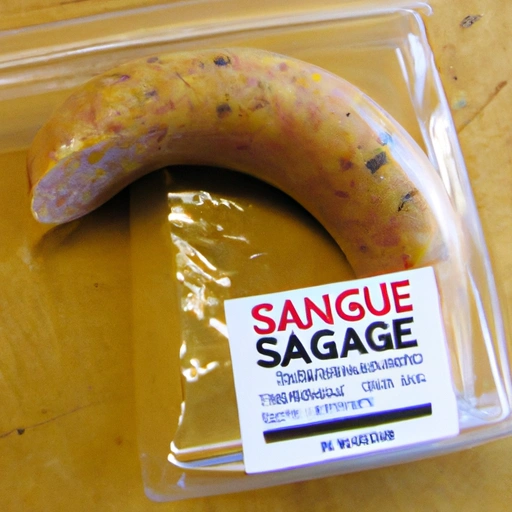Vegan Sausage
Description

Vegan sausage is a plant-based food product designed to mimic the taste and texture of traditional sausage made from animal meat. Incorporating a blend of proteins, spices, and other flavorings, vegan sausages are a popular choice for those following a vegan, vegetarian, or flexitarian diet, as well as for meat-eaters looking for healthier or more sustainable alternatives.
Common uses
Vegan sausages are commonly used as a meat substitute in various dishes, offering a protein-rich ingredient for those looking to reduce or eliminate meat consumption. They can be found in breakfast items, pizza toppings, pasta sauces, sandwiches, and even as the main protein in hearty stews and casseroles.
Nutritional value
Calories
A standard serving size of 100 grams (3.5 oz) of vegan sausage may contain approximately 220-260 calories, depending on the brand and ingredients used.
Protein
Vegan sausages typically provide about 15-20 grams of protein per 100 grams (3.5 oz) serving, offering a substantial protein source comparable to that of meat sausages.
Fat
The fat content in vegan sausages varies by recipe but generally ranges from 10-15 grams per 100 grams (3.5 oz), with a mix of saturated and unsaturated fats.
Carbohydrates
Carbohydrate content can vary widely, but on average, there might be 10-20 grams of carbohydrates per 100 grams (3.5 oz) serving, including dietary fiber.
Vitamins
Many vegan sausages are fortified with vitamins such as B12, which is essential for vegans, as well as other B vitamins and vitamin E.
Minerals
Minerals such as iron, often in the form of non-heme iron, and potassium are typically present in vegan sausages, sometimes also fortified with calcium and zinc.
Health benefits
Vegan sausages, being plant-based, offer several health benefits, including lower levels of cholesterol and saturated fat compared to traditional meat-based sausages. They also provide dietary fiber, which is absent in animal meat, contributing to better digestive health.
Potential risks
Some vegan sausages may contain high levels of sodium or processed ingredients. It's essential to read labels and choose options with minimal additives and preservatives to ensure a healthier choice.
Common recipes
Vegan sausages can be used in a myriad of recipes, from vegan hot dogs to bangers and mash, lending their robust flavor to Italian pasta dishes, savory breakfast scrambles, and even as a pizza topping.
Cooking methods
These versatile sausages can be grilled, pan-fried, baked, or even air-fried. They are typically pre-cooked, making them a convenient and quick addition to meals.
Pairing with other ingredients
Pair vegan sausages with classic sides like sauerkraut, roasted vegetables, or creamy mashed potatoes. They also complement a variety of sauces, from traditional mustard to spicy marinara.
Summary
Vegan sausage is a dynamic and health-conscious ingredient, suitable for many culinary applications. With a rich flavor profile and numerous health benefits, it's an excellent addition to any kitchen repertoire, offering a flavorful experience for vegans and meat-eaters alike.